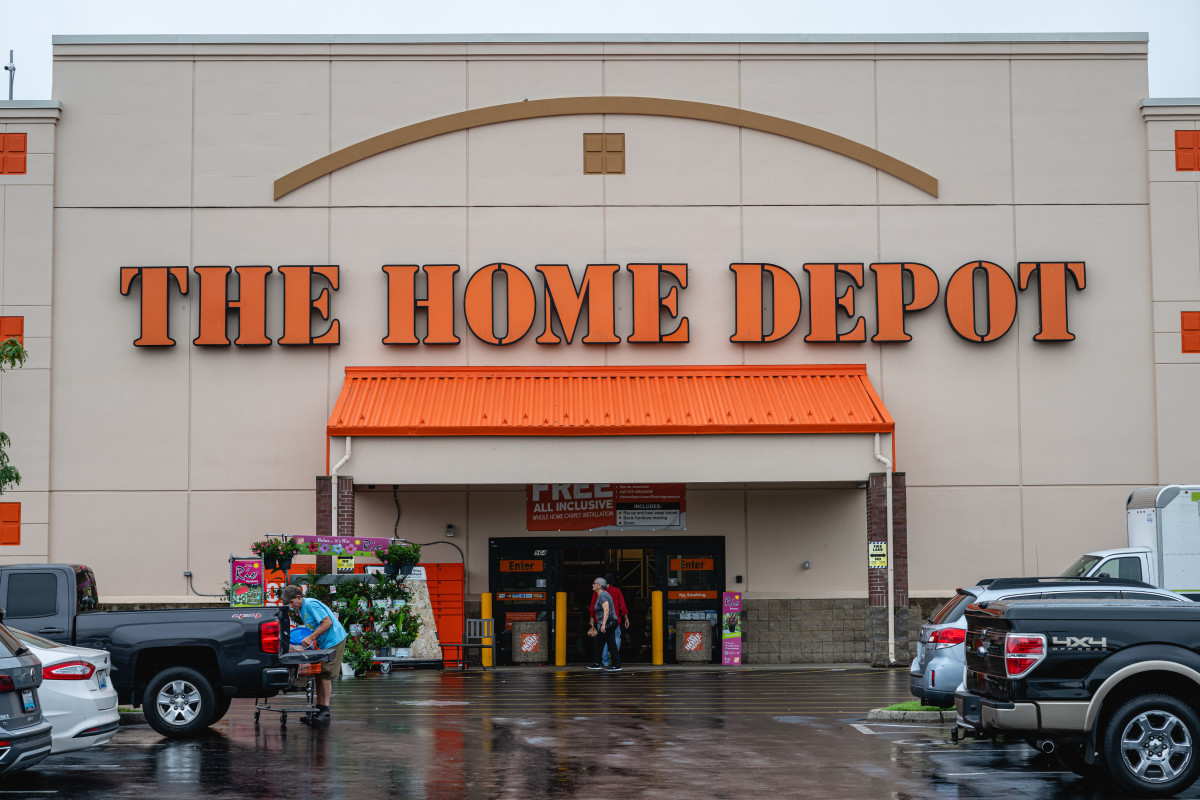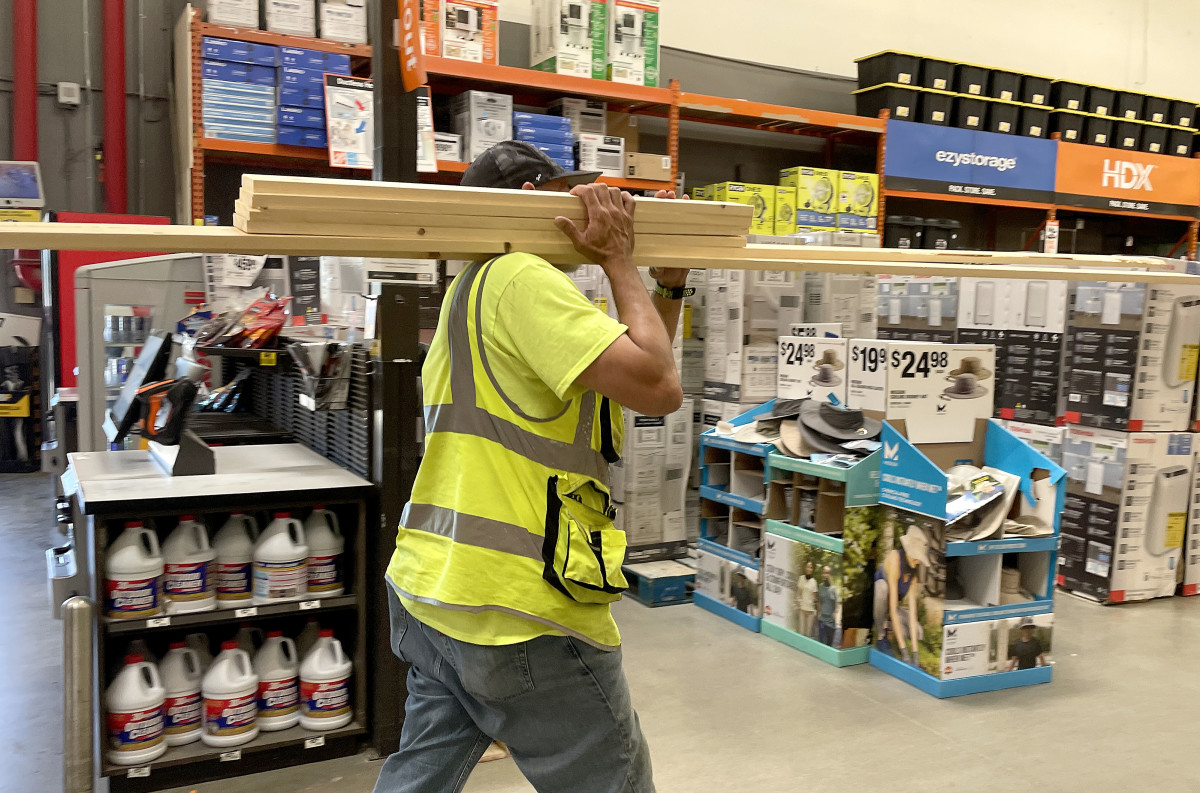
If you're a retailer and somehow survived the early 2020s, chances are, you've got some interesting tales to tell.
Many have muddled through 2020-23, grappling with a stagnant post-covid recovery, dwindling profit margins and inventory shrink thanks to a rise in retail crime. Such a rise, particularly in theft, shoplifting and other property crimes has caused an increase in inventory shrink, the retail industry's term for lost or stolen goods. That surge has cut into profitability and in turn has prompted many stores to close.
Related: Target closing 9 stores indicates a larger issue in these major cities
And while it certainly names inventory shrink as a "battle" in the retail space, one such company that sailed relatively smoothly through the past several years has been Home Depot (HD) -). Given its niche, the retailer actually thrived when people were stuck at home with little else to do except for look around at all the home improvement needs they'd been putting off.
And now, with homebuilding and construction roaring back to life in many areas of the country, Home Depot has been looking to other areas to bolster its bottom line and improve its own stance as a nationwide retailer.
One of those is in the renewable energy space.
Home Depot looks to revamp its tools
Home Depot said in a recent press release that it plans to make its gas-powered tools relatively obsolete in the next several years, instead replacing them with battery and electric powered upgrades.
Most of its gas tools are outdoor equipment; think weedwackers, lawn mowers, leaf blowers, and trimmers. It aims to replace these with battery power by the end of 2028. At that point, Home Depot wants to see 85% of its outdoor lawn equipment sales to be driven by rechargeable battery power in the U.S. and Canada.

It estimates this change will reduce greenhouse gas emissions by two million metric tons and pave the way for other retailers to follow in smaller carbon footprints.
In order to achieve this, Home Depot intends to "extend its leadership position in battery technology," in some leading household equipment brands, carrying more battery powered tools by names like Ryobi, Milwaukee, Makita, DeWalt.
Many of these brands have issued their own intentions to develop more powerful battery versions of their tools — and it's not just better for the earth. Home Depot says an investment in battery powered capabilities will allow for "less noise, less maintenance and easier startups."
For perspective, one hour of work by a standard gas-powered lawn mower is equivalent to a car driving 300 miles. One hour of work by a gas-powered leaf blower creates the emissions equivalent to a car driving 1,100-miles — about the length from Los Angeles to Denver.
Of course, battery powered tools also require the equipment to charge them, so any customers planning on making the transition along with Home Depot (and that may be inevitable within the next few years) will have to be prepared to make space for chargers, outlets, and all the accessories and accoutrement associated with the new tools.
They'll also have to hope that such tools deliver the same power and operating capacity that a gas-powered one might.
Home Depot says it and its partners are "committed to building rechargeable tools that deliver the power that customers have come to expect from gas-powered equipment and the run times they need to complete a job."







